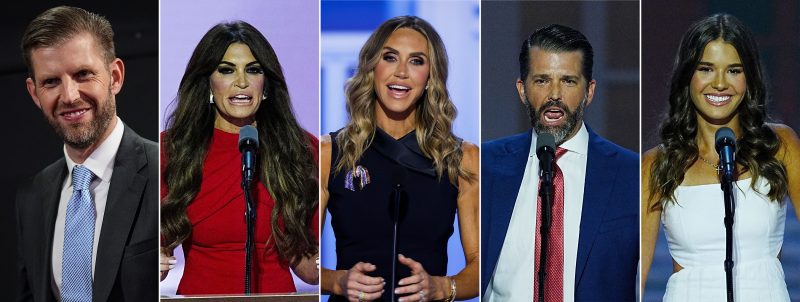
Unveiling the RNC: Who’s in the Spotlight and Who’s Left in the Shadows?
The Republican National Convention (RNC) is known for being a platform that showcases prominent members of the GOP, and the 2020 edition was no exception. With the Trump family taking center stage, there was significant anticipation surrounding who would have speaking roles at the event. Let’s delve into a breakdown of who did and didn’t have a speaking role at the RNC.
1. **Key Players at the RNC:**
Among those with speaking roles, it comes as no surprise that President Donald Trump was a prominent figure. As the sitting President and Republican nominee, his address was a focal point of the convention. First Lady Melania Trump also had a speaking slot, using her platform to appeal to a diverse audience. Notably, several of President Trump’s children, including Ivanka, Eric, and Tiffany, took the stage to voice their support and advocate for their father’s re-election.
2. **Notable Omissions:**
Despite expectations, some prominent figures within the GOP were notably absent from the list of speakers at the RNC. Former Presidents George W. Bush and George H.W. Bush did not make an appearance. Additionally, several Republican senators who have been critical of the President, such as Mitt Romney and Susan Collins, did not have speaking roles, signaling divisions within the party.
3. **RNC Themes and Messaging:**
The RNC served as a platform to amplify the Trump administration’s accomplishments and outline its vision for the future. Themes of law and order, economic prosperity, and nationalism were central to the messaging throughout the convention. Speakers highlighted the administration’s response to the COVID-19 pandemic, emphasizing a message of recovery and resilience under President Trump’s leadership.
4. **Diversity and Inclusivity:**
One area of contention surrounding the RNC was the lack of diversity among speakers. Critics pointed out the predominantly white lineup and the absence of voices representing marginalized communities. The Republican party faced criticism for not adequately addressing issues of racial inequality and diversity within its ranks.
5. **Impact and Reception:**
The RNC generated a mix of reactions, with supporters praising the lineup of speakers and the overall messaging of the convention. On the other hand, detractors criticized what they perceived as a lack of inclusivity and failure to address pressing issues facing the nation. President Trump’s acceptance speech, delivered at the White House, drew particular attention, with supporters lauding his performance and critics questioning the ethics of using federal property for a political event.
In conclusion, the RNC served as a platform for the Trump family to rally support for the President’s re-election bid. While key figures within the GOP stood in solidarity with President Trump, the absence of certain voices and the perceived lack of diversity raised questions about the party’s inclusivity and messaging. The impact of the convention and its speakers will likely reverberate throughout the election season, shaping perceptions and influencing voter sentiment.
